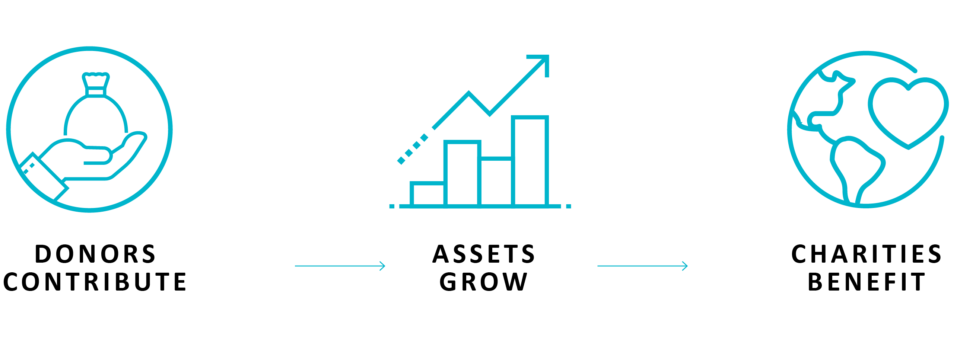
TrustWell’s Quarterly Market Review: Q4 2021
January 3, 2022
Making the Most of Your Kid’s Savings
March 1, 2022By Chris Daunhauer
The writings of a Jewish philosopher, astronomer, and physician who lived more than 800 years ago have been on my mind lately. There’s a monument to his memory in the US House of Representatives, but he’s become almost unknown in our time outside Jewish and philanthropic circles.
His name is Moses ben Maimon (also known as Maimonides or Rambam). He lived between 1138 and 1204; his early years in southern Spain where he was born and raised, and his later years in northwest Africa and in Egypt after the exile of non-Muslims from southern Spain. Maimonides is the best known Torah scholar of the Middle Ages, but his sharp mind and fields of interest were wide ranging. His prolific writings include instruction on medicine and health, criminal justice and law, and religion and science.
For the few who do recognize the name Maimonides, it’s likely for the “giving ladder,” or “the ladder of charity” that he developed as a model of wise and rewarding giving. His ladder is a simple yet profound way to think about charitable giving and yet another example of ancient wisdom rediscovered in recent times. Thinking about his ladder has caused me to examine my own motivations for giving, and helped me make better decisions on how much and to whom I give.
The “giving ladder” consists of 8 rungs, or levels, each a little higher, nobler, and more rewarding than the one below it.
- The first and lowest level rung on Maimonides’s ladder is giving to others out of pity or out of guilt. Recipients happily accept the gifts, of course, but this kind of giving earns the giver no real reward, except perhaps a soothed conscience. This first level is giving in name only and should be avoided. St. Paul’s letter to the Christian church at Corinth included a loving warning to avoid this first rung kind of giving (see 2nd Corinthians chapter 9 verse 7).
- The second rung is giving willingly, but in an amount below the giver’s capacity. The average American gives only about 2% of his or her income to charity each year. The average American church attender gives only 3% of income. As a percentage of income, very few Americans give generously. Most stay stuck on the second rung of the giving ladder, and many of them, sadly, feel proud to be there.
- The third rung is giving a significant amount and doing so willingly, but only after being asked to give. This is the rung where lots of middle and upper income Americans stand to do their giving. Their sizable gifts are great helps to the charities who receive them, but the givers are missing out on the much better views available higher up on the giving ladder.
- The fourth rung is giving significant amounts without being asked to give but insisting on knowing the recipient and on being known as the giver. Level four is better by far than the rungs below it, and generally commendable. Givers at this level are careful; they look for good charities that need resources but they also enjoy being known and thanked for their giving. Lots of businesses and foundations and wealthy families stay on this level.
- The fifth rung is giving willingly and in significant amounts to a person or specific cause that you do not know. Giving to a large bundling agency like United Way or a national scholarship fund or a denominational mission fund are examples of not knowing the final recipient of one’s giving. There’s nothing wrong with this kind of giving, but there are three even higher levels.
- The sixth rung is giving anonymously to a person or charity you know and care about. Giving anonymously is especially fun, in my opinion, and there are ways to give anonymously to charities while still keeping your gifts tax deductible if that’s important to you. Anonymous giving also reduces the number of future appeals from charities that you will receive, and that’s a plus all by itself.
- The seventh rung is giving to a person or charity that you will never know and who will never know you. This kind of anonymous giving is very near the top of the ladder – and to Maimonides it’s more “pure” than any of the rungs below it. To give without needing recognition and to do so without needing to know who will benefit from your giving is a rare and beautiful thing.
- The eighth and highest rung is giving money, goods, or time to help a person become self-sufficient and no longer in need of anyone’s charity. Givers at this level give the most valuable gift of all – the chance for a permanent life change and the satisfaction of earned success. Givers standing on this highest rung of the ladder see their giving as an investment, and they focus on long-term causes instead of short term effects. They seek opportunities to “teach a man to fish” vs. just “giving a man a fish.” Giving the gift of self-reliance is often much harder than just writing a check. It may involve entanglement in the sad and messy life of the recipient, in giving him or her a meaningful job, sharing your home with him or her, sharing your professional network, or sharing many months or years of your life with that person. This eighth rung is hardest of all, and Maimonides believed it gains for the giver the most honor.
Questions for further thought…
- Thinking about your current giving habits and the eight rungs of the ladder, where do you stand most of the time?
- Where did you learn the giving habits that you have now?
- When you give to individuals or to charities, what’s your motivation?
- How is giving to family members and friends different from giving to charities?
- Giving anonymously is easier than ever and higher on the ladder. But should all giving be anonymous? Why or why not?
- How much of your annual income and accumulated wealth could you give if you chose to?
- What percent of your income was your giving in 2021? And how does that compare with the average American?
- Are you looking for new places to give? Or just willing to give when asked?
- Read St. Paul’s giving instructions for the Christian church at Corinth (found in 2nd Corinthians chapter 9). Paul was a learned Jewish scholar and a student of Hebrew teachings just like Maimonides was. What do St. Paul’s instructions to the Corinthians and the giving ladder have in common?
Good Next Steps…
- Share your thoughts on charitable giving with your family the next time you are together with them. Preach what you practice. Tell them why you choose to give.
- Try giving from a rung higher than the one you stand on most often.
- Call or email TrustWell and ask us for other helpful resources on this topic.
TrustWell’s advisors are happy to share our personal experiences and to help you develop a better, more fulfilling strategy for your charitable giving. Getting a tax deduction should never be the only reason for giving, but the US tax code still encourages giving from all rungs of the ladder, and we know tax smart ways to make gifts to most any kind of recipient.




